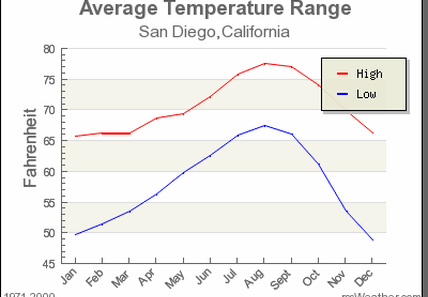The Climate Project 2025 represents a significant juncture in global environmental policy and advocacy, aiming to galvanize action against the relentless march of climate change. This initiative is not merely a program but a clarion call for collective responsibility and remediation, urging individuals, corporations, and governments alike to converge towards sustainability. As we delve into the various dimensions of the Climate Project 2025, it is imperative to understand the ambitious goals set forth to safeguard our planet’s future.
At its core, the Climate Project 2025 encapsulates a multifaceted approach to combatting climate change. It synthesizes actionable objectives, strategies, and benchmarks designed to significantly reduce carbon emissions, which are pivotal to mitigating global warming. Among its pivotal aims are the ambitious targets of achieving net-zero greenhouse gas emissions by 2050, with intermediate milestones established for 2025. These milestones include advocating for renewable energy adoption, enhancing energy efficiency, and transforming unsustainable agricultural practices.
The foundation of the Climate Project 2025 rests on robust scientific research and climate modeling. These empirical frameworks inform the roadmap that delineates how nations can transition effectively away from fossil fuels. Through comprehensive studies, the initiative emphasizes the importance of investing in clean energy technologies such as solar, wind, and hydroelectric power. This investment is not only environmentally prudent but economically beneficial, spurring new job creation while ensuring energy security.
Moreover, the project champions technological innovation as a linchpin for achieving its objectives. Incentivizing startups and established companies to develop cutting-edge solutions is paramount. This includes advancements in battery storage, carbon capture and storage (CCS), and sustainable materials science. By fostering a culture of innovation, the project seeks to create an ecosystem where creativity and environmentally responsible practices coalesce, reducing the ecological footprint of industrial processes.
Central to the aims of the Climate Project 2025 is the emphasis on public engagement and education. Awareness campaigns target diverse demographics, aiming to instill a sense of urgency and agency in the public sphere. Programs designed to educate communities on sustainable practices play a crucial role. From workshops on energy conservation to initiatives promoting responsible consumerism, these efforts are designed to empower individuals to make informed decisions that collectively contribute to climate action.
The initiative also emphasizes the pivotal role of policy reform. Governments are encouraged to enact and enforce legislation aimed at curbing emissions and promoting sustainability. This encompasses regulations incentivizing electric vehicle adoption, carbon pricing mechanisms, and investment in public transport infrastructure. The project advocates for comprehensive policies that promote equitable transitions, ensuring that marginalized communities impacted by climate change are given priority support and resources. Such considerations for social equity underscore the necessity for inclusivity in climate discourse.
An often-overlooked aspect of the Climate Project 2025 is its focus on nature-based solutions. The project underscores the importance of preserving biodiversity and ecosystems, which are essential in sequestering carbon dioxide and regulating local climates. Initiatives aimed at reforestation, wetland restoration, and soil rehabilitation are integral to bolstering ecological resilience. These efforts highlight an understanding that environmental stewardship is intertwined with climate action, echoing the interconnectedness of our planet’s systems.
Furthermore, the project anticipates collaboration on a global scale. Climate change knows no borders, and as such, international coalitions are paramount to transcending national interests. Through frameworks established under the Paris Agreement, nations are encouraged to share knowledge, technology, and resources to foster a collective response to climate challenges. This cooperative spirit is essential for creating a cohesive strategy that reflects not only local priorities but also contributes to global sustainability efforts.
The educational components of the Climate Project 2025 extend to academic institutions, where interdisciplinary studies on climate science are increasingly prioritized. Universities and research facilities are urged to engage in climate research and provide curricula that equip future generations with the knowledge required to navigate and mitigate climate change effectively. By fostering a cadre of informed leaders and innovators, the project aims to ensure continuity in environmental advocacy and action.
In terms of measurable achievements, the Climate Project 2025 sets forth a framework for assessing progress through key performance indicators (KPIs). These indicators may encompass reductions in emissions, increases in renewable energy utilization, and investments in green infrastructure. Consistent reporting and transparency are essential, as they both showcase advancements and uphold accountability among participating entities.
Ultimately, the Climate Project 2025 is underscored by a vision of resilience and stewardship, advocating for a paradigm shift towards sustainable development. The multifarious components of this initiative – from technological innovation and education to policy reform and global collaboration – weave a comprehensive tapestry of solutions aimed at preserving the planet for posterity. The ambitious goals set forth are not merely aspirational; they are an imperative call to action for all stakeholders engaged in the stewardship of our shared home.
In conclusion, the Climate Project 2025 stands as a beacon of hope in an era characterized by ecological turmoil. Its tenets encapsulate a vision of innovation, empowerment, and collaborative action that is essential for ushering in a sustainable future. By adhering to its goals and embracing the ethos of environmental responsibility, humanity can aspire to not only mitigate the effects of climate change but also thrive in harmony with the earth’s ecosystems.








